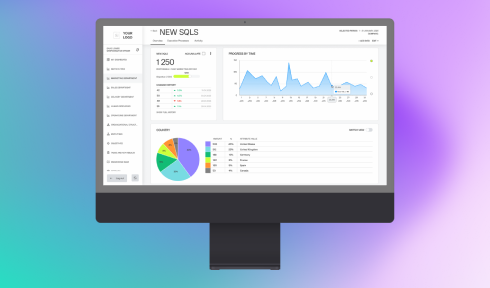Experts claim that businesses can gain better control of their data centers by applying new private and hybrid cloud strategies. These strategies can significantly improve visibility and simplify operations.
Many businesses seek advantage of digital trends and this is where the cloud comes to the fore. While cloud strategies are getting more popular, the term “cloud” means different things to different types of companies.
A small company might use this term for software as a service (SaaS) since for such a company applications on a pay-as-you-go model are more convenient. Big organizations such as Amazon Web Services or Microsoft Azure use “cloud” to describe their public infrastructure as a service.
Private Cloud Is Best for Large Businesses
It is a well-known fact that large businesses mostly use the cloud as some kind of hybrid structure where private data centers make up most or even the entire cloud infrastructure. The ZK Research 2018 Global Cloud Forecast predicted that by 2020, there would be more operating loads in private clouds than anywhere else. Public clouds or those available as legacy on-premises workloads will become less popular.
Related Experience

Experts foretell that usage of private clouds will cause a rise in demand for colocation services. This would be the natural outcome of companies’ demand to build infrastructure quickly and without the associated complexity and risks.
The Colocation Providers’ Problems with Visibility and Control
Two main challenges for the colocation providers are visibility and control. This appears to be extremely annoying while providers try to overcome the difficulties associated with running a data center. When any of the critical applications causes a problem, IT professionals need to see and understand what is going on, they also need the relevant information to fix the problem quickly.
This challenge has been there ever since the beginning of data centers. In the early 2000s, gaps were fixed ad hoc, mostly by looking through log files, scrubbing them and looking for problems manually. This was good enough for small deployments, but it certainly didn’t scale for big crashes. Therefore, the engineers developed the Information Technology Infrastructure Library (ITIL). It contains a detailed set of best practical advice for managing the data center. Back then the ITIL certainly become a perfect solution, providing visibility for data center operations and actions that needed to be taken to optimize performance. However, things change.
Why Doesn’t ITIL Work Anymore?
The technology development is an unstoppable process that is constantly gaining speed. This is one of the reasons why those old ITIL standards worked ten years ago but don’t do the job today. A few modern technologies, such as artificial intelligence (AI), machine learning and blockchain are disrupting data centers.
Many small businesses may think these technologies are only for leading-edge companies. Nevertheless, things like AI are coming quickly, and businesses that don’t implement them tend to disappear even faster.
Automation Comes to Rescue
Manual troubleshooting and remediation that was used before is now getting too slow and not effective enough. What is more, it may put businesses at risk. Reliance on data centers and data growth, combined with the speed at which modern businesses operate, require better automation. Such automation makes day-two operations almost autonomous. The best choice for many companies is a data-center provider that has an API access to the infrastructure, enabling it to interoperate with public clouds. This allows customers to migrate data or workloads from cloud to cloud if they choose.
Another key requirement is visibility. Current visibility tools only show the simple up/down status of infrastructure. However, what modern businesses really need is a complete view of public and private cloud assets across all infrastructure down to the component level. This benefits the operations and opens a perfect view of any area that could cause a problem or present a security risk.
Arguments in private clouds’ favor lead experts to one conclusion: for most large enterprises private clouds are much more important than the public ones. This doesn’t mean that using private clouds for small businesses is meaningless. Just the opposite, many small and medium enterprises gain great advantages from adopting cloud. Such colocation providers as QTS, Digital, and Equinix provide the perfect alternative to in-house computing systems and are worth looking into. What is more, QTS CEO Chad Williams stated, “Our Service Delivery Platform, or SDP, remains a key differentiator and further establishes QTS as a lead innovator within the hybrid colocation market.”
Need to adopt the cloud to your processes? Contact our experts at info@computools.com. We’ll develop a strategy for businesses of all sizes.

Computools
Software Solutions
Computools is a digital consulting and software development company that delivers innovative solutions to help businesses unlock tomorrow.









“Computools was selected through an RFP process. They were shortlisted and selected from between 5 other suppliers. Computools has worked thoroughly and timely to solve all security issues and launch as agreed. Their expertise is impressive.”